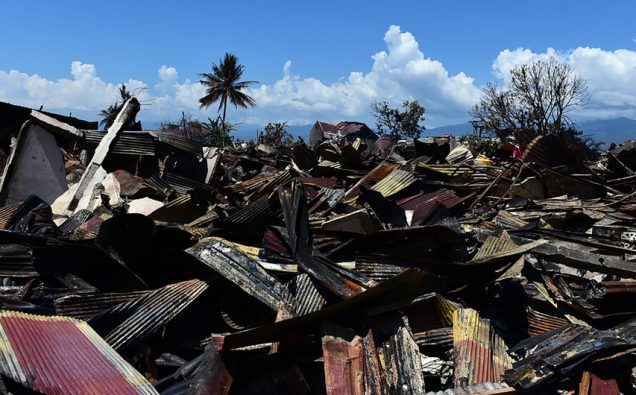
If the unusually high October temperatures, Hurricane Michael devastation in Florida and Tsunami ravages in Indonesia do not scare you enough to act, here is a climate change horror card that has deprived humanity of 1.3 million lives, injured and rendered homeless another 4.4 billion and taken away $2.908 trillion.
The figures blare out of a UN report findings that details some of the staggering losses over the last two decades.
Coinciding with the disaster loss findings report is the warning that the Intergovernmental Panel on Climate Change (IPCC), a UN-backed body, issued saying limiting rising mercury to 1.5 degrees a decade needs urgent and drastic measures.
Put together, the two reports warn if action is not taken, climate degradation could spell huge troubles.
The reports are a latest reminder of how reckless development policies and practices are abetting natural disasters that strike the earth, its oceans and air.
The UN Office for Disaster Risk Reduction UNISDR says people in low- and middle-income countries are seven times more likely to die from natural disasters than those in developed nations.
The report comes as nations struggle to implement the 2015 Paris Climate Agreement without U.S. leadership. Meanwhile, tsunamis, earthquakes, floods, droughts and storms continue to inflict more pain on the planet.
“This puts a big emphasis on the need to…make sure that we curb greenhouse gas emissions,” said Ricardo Mena, UNISDR chief, in charge of implementing the Sendai Framework.
The disasters hist the global economy hard between 1998 and 2017, according to the report, with direct losses of $2.908 trillion – more than twice losses over the previous two decades.
The report says the “dramatic rise” of 151 per cent compares with losses reported between 1978 and 1997, which amounted to $895 billion.
Extreme weather events now account for 77 per cent of total economic losses, $2.245 trillion, the report says
The UN says greater investment in disaster risk-reduction measures may be one way of dealing to stop new risks.
But heatwaves continue to ring the alarm bells and the UN says next five to 10 years are crucial.
Co-author Professor Debarati Guha, from the Institute of Health and Society (IRSS), part of the Université Catholique de Louvain (UCL), says:
“The next one that is going to hit us with an explosion is heatwaves,” she said. “It’s going to be both in poor countries, remember, human beings have a limit, a thermal resistance limit…it is also going to be a huge problem in the wealthier countries.”
These reports come as the world moves into a new phase of international conflicts – including trade wars and rise of nationalism vs global thinking. Will we take into account these facts when we decide what kind of future we want?

















[…] Climate change – what kind of future do we want? […]
[…] Climate change – what kind of future do we want? […]
[…] Climate change – what kind of future do we want? […]